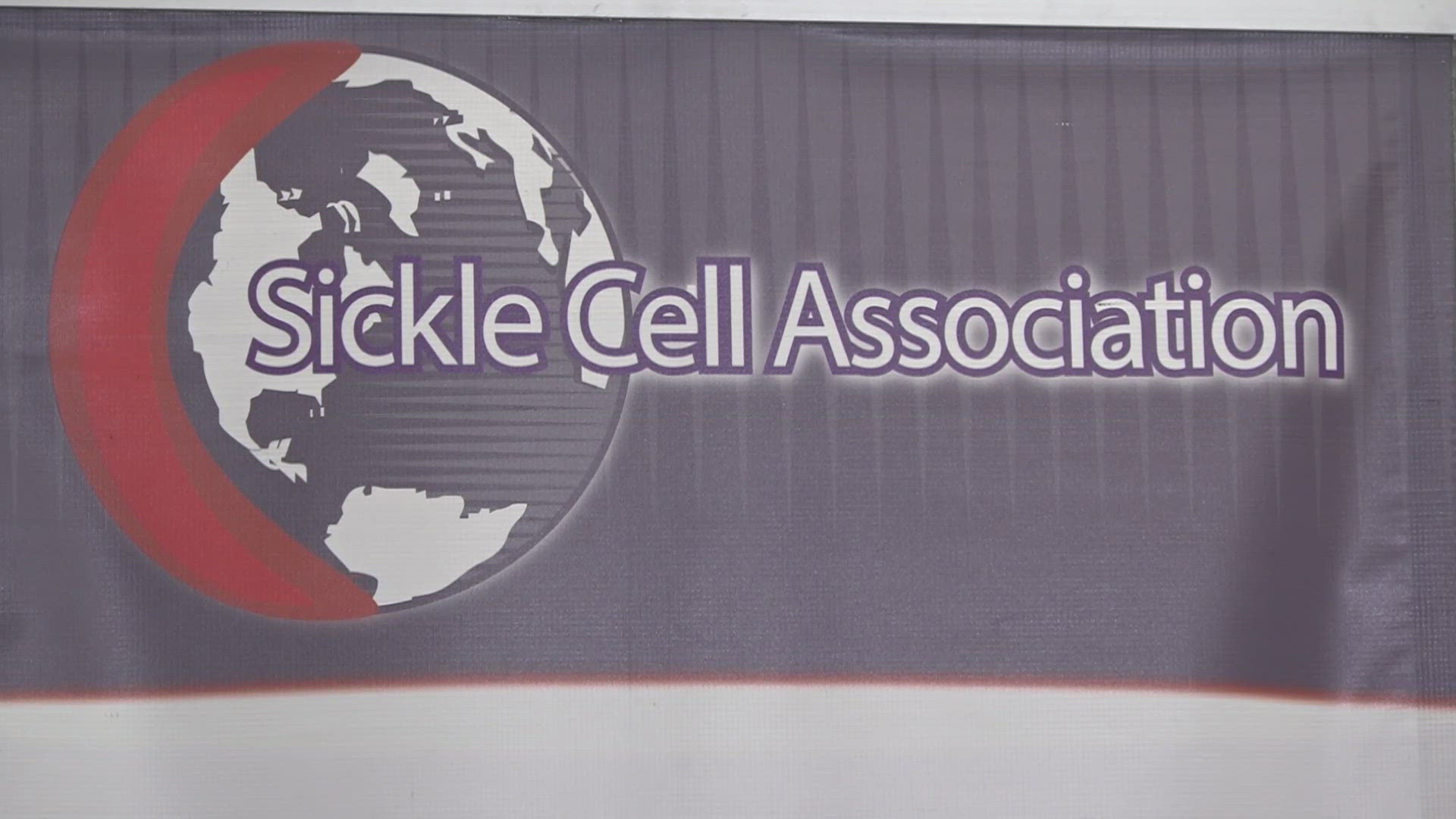ST. LOUIS — One St. Louis mom is using her daughter's story to educate the public about sickle cell disease. It's the most common genetic blood disease in America and primarily affects the African American community.
September is National Sickle Cell Awareness Month, but for Rosemary Britts, spreading education and awareness is a year-round commitment.
"There’s absolutely a lot more education that needs to take place. I still run into people that say they didn't know anything about sickle cell," she said.
For the past 13 years, Britts has devoted her life to spreading awareness about sickle cell disease.
"Individuals with sickle cell did not ask for this disease, they were born with this," she said.
The disease affects the red blood cells causing them to take a crescent shape because they lost oxygen. Those cells then become hard and sticky and can get lodged into the blood vessels. Those cells then only last for about 14 days, as opposed to most people's normal red blood cells, which can last for about 120 days.
According to Britts, sickle cell leads to immense pain and sometimes even strokes. Other symptoms include jaundice, fatigue, fever, swollen hands and feed and high blood pressure.
"To hear a small child, say, 'It feels like broken glass running through my veins.' That's really heart wrenching," she said.
Those are words Britts heard from her own child, Ronisha, who battled the disease like a warrior. Britts raised her daughter to still live life to the fullest.
"I felt like if she wanted to skydive, that I'd figure out how to put an oxygen tank on her back," she said.
Unfortunately, Ronisha lost her life to sickle cell at 29-years-old, but her memory lives on through Britts' nonprofit, Sickle Cell Assocation. The nonprofit provides support group meetings, resources and even financial assistance.
"We started the Sickle Cell Association because there wasn't anything to help people in the community at the time.
Being that I was a caregiver of a child with sickle cell at the time, I kind of knew what was needed or what I felt was needed," she said.
According to the CDC, sickle cell disease affects about 100 thousand people in America, with more than 90% being African Americans. That's why Britts said it's so important to educate the public.
"If both parents carry the gene, they have a one in four chance of giving birth to a child with the disease," she said.
That's why Britts said its important parents know their trait status early on.
"I don't tell people what to do about growing their family, but I want them to make an educated decision about growing their family. It's important that we let people know this one, so that we can curb the number of babies born with the disease to unsuspecting parents and two, so that we can get the best care for those that are living with the disease," she said.
Britts hopes through the Sickle Cell Association she can positively impact other families as she carries on her daughter's legacy.
"I can hear her in the back of my head saying, 'Go, mom, go.' I just I know that she would be absolutely proud that I'm continuing to help other individuals that are living with sickle cell," she said.
You can donate to Sickle Cell Association here.

